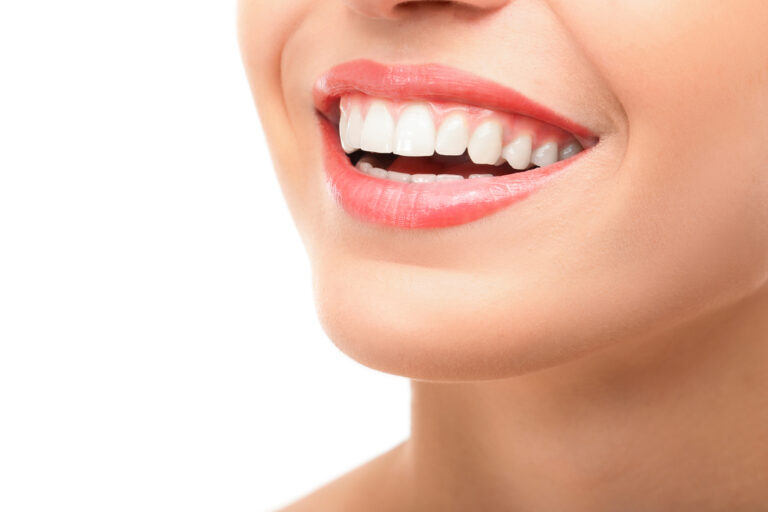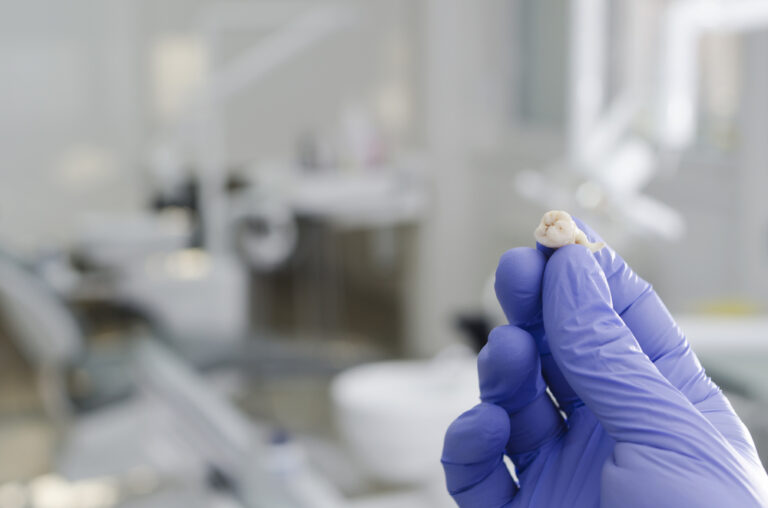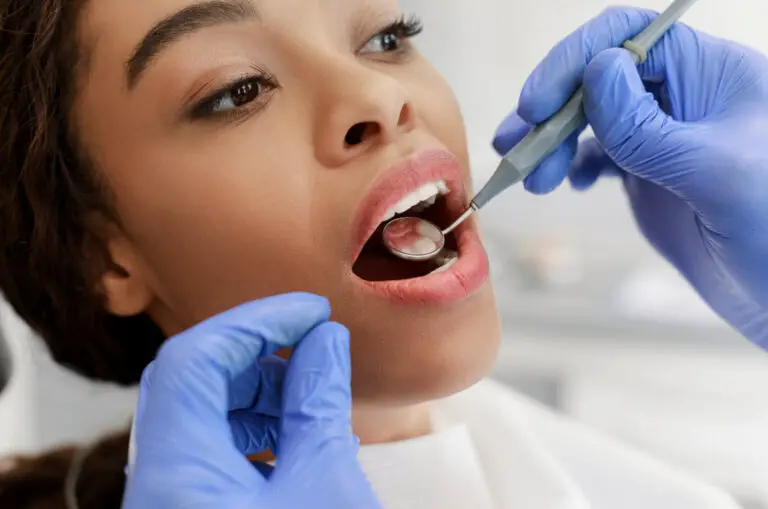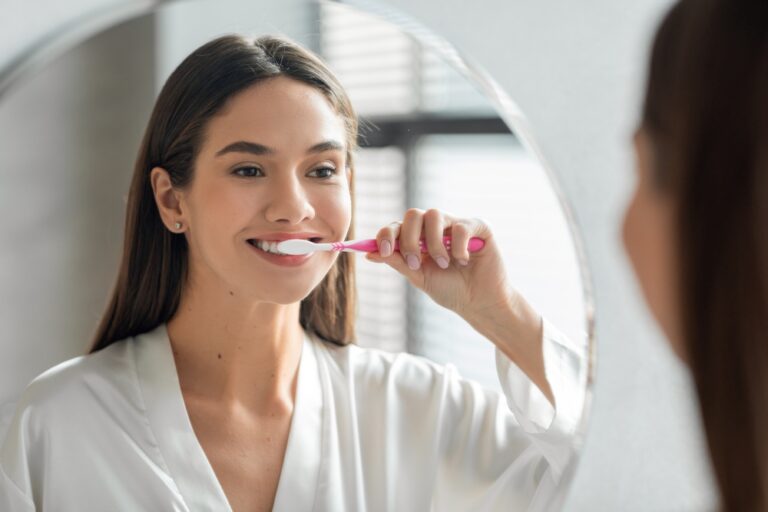Proper oral hygiene is absolutely vital for maintaining health and wellness. Keeping teeth and gums clean prevents cavities, gum disease, tooth loss, bad breath, and numerous other oral health problems. Good dental care also reduces systemic inflammation connected to cardiovascular, respiratory, and other diseases. This article explores the importance of oral health in depth, providing guidance on brushing, flossing, professional cleanings, and establishing lifelong hygiene habits.
Key Reasons for Proper Oral Care
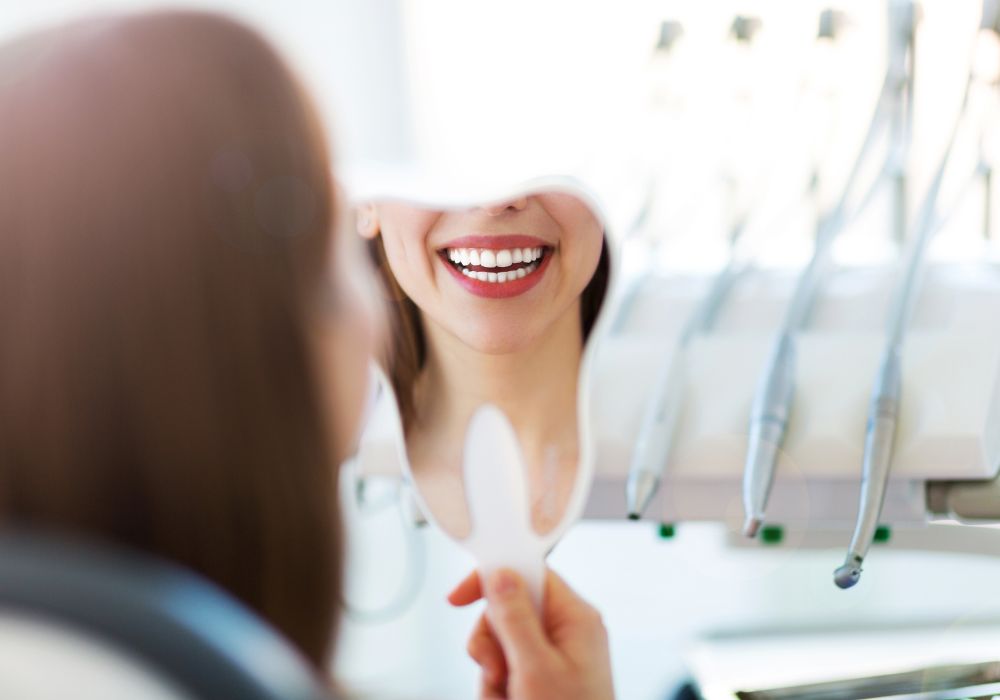
Here we will examine the most significant benefits of diligent brushing, flossing, and professional dental cleanings:
Prevent Tooth Decay and Damage
Tooth decay occurs when plaque bacteria consume sugar and release acids that erode tooth enamel. Enamel is the protective outer layer of the tooth. Once enamel erodes, decay spreads to the more sensitive dentin beneath it. This causes tooth cavities. Cavities grow bigger over time, leading to painful toothaches, tooth sensitivity, and even tooth loss if decay reaches the inner pulp.
Brushing thoroughly twice per day with a soft-bristled fluoride toothpaste removes plaque before it can produce enough acid to decalcify enamel. Fluoride strengthens enamel making teeth more decay resistant. Flossing once daily clears plaque from between teeth and just below the gumline where cavities often start. Professional cleanings every 6 months give teeth a deep cleaning to areas brushing and flossing can’t reach. Performing all three protects your teeth from erosive decay and costly dental work down the road.
Prevent Gum Disease
Gum disease is inflammation and infection of the gums and supporting structures of the teeth. It is caused primarily by plaque buildup on teeth. Plaque hardens into tartar that irritates the gums. Gingivitis is the early stage, with red, swollen, and bleeding gums. Without treatment, it can advance to periodontitis, with severe gum infection and jaw bone damage. Tooth loss can result as gums detach from teeth.
Daily plaque removal through brushing, flossing, and antimicrobial mouthwash keeps gums healthy. It’s vital to brush gently to avoid abrasions that make gums vulnerable to bacteria. Regular dental visits allow dentists to remove hardened tartar from below the gumline and detect any early gum disease. Treating gingivitis can stop its progression to destructive periodontitis.
Freshen Breath
Bad breath, or halitosis, largely stems from odor-causing sulfur compounds produced by bacteria in the mouth. Food particles and post-nasal drip also contribute. Thorough oral hygiene of brushing tongue, teeth, and gums reduces bacteria populations that create sulfur compounds and cause bad breath. Flossing removes debris between teeth. Antimicrobial mouthwash kills bacteria missed by brushing and flossing. Drinking plenty of water prevents dry mouth which allows bacteria to thrive. Quitting smoking can also freshen breath.
Prevent Oral Infections
Careful cleaning removes bacteria before they penetrate deep into teeth and gums where they can cause infectious dental abscesses. Abscesses are pus-filled pockets resulting from a bacterial infection spreading from a tooth’s pulp to the root and jaw bone. The pus buildup causes excruciating throbbing pain until the infection is surgically drained. Taking antibiotics and undergoing a root canal or tooth extraction are also necessary. Proper dental hygiene decreases chances of needing this invasive, costly treatment.
Strengthen Tooth Enamel
Fluoride applied directly to teeth remineralizes enamel by attracting calcium and phosphate ions. It builds back weakened enamel and makes it more resistant to plaque acids. Most toothpastes contain fluoride, as do some mouth rinses. Topical fluoride gel or varnish applied during dental visits boosts the teeth’s fluoride content and further strengthens enamel against decay. Fluoridated drinking water provides smaller ongoing amounts of enamel-fortifying fluoride.
Maintain Attractive Smile
Brushing and flossing removes stains on teeth from coffee, tea, wine, tobacco and certain foods. It prevents buildup of tartar along the gumline which gives teeth a yellow tinge. Keeping teeth clean makes them appear whiter and brighter. A healthy, beautiful smile boosts self esteem and makes a good first impression in social, academic, and professional settings.
Prevent Bad Tastes and Halitosis
Food particles left between teeth easily decay, producing a bad taste in the mouth and unpleasant breath odor. Meticulous flossing dislodges trapped debris that brushing misses. Using mouthwash eliminates lingering bacteria that generate smelly sulfur compounds. Regular cleanings allow dentists to polish away staining and calculus that cause bad tastes.
Save Money on Dental Work
Neglected oral hygiene leads to expensive fillings, crowns, root canals, gum surgery, dentures, and more. Preventative care costs far less than restorative work. Routine cleanings run $75-$200 but fillings are $150-$300, crowns $1000-$3000, extractions $150-$450, and dentures $1000-$5000. Just a few cavities can cost more than years of proactive care, not to mention the pain and time they involve.
Proper Brushing Techniques
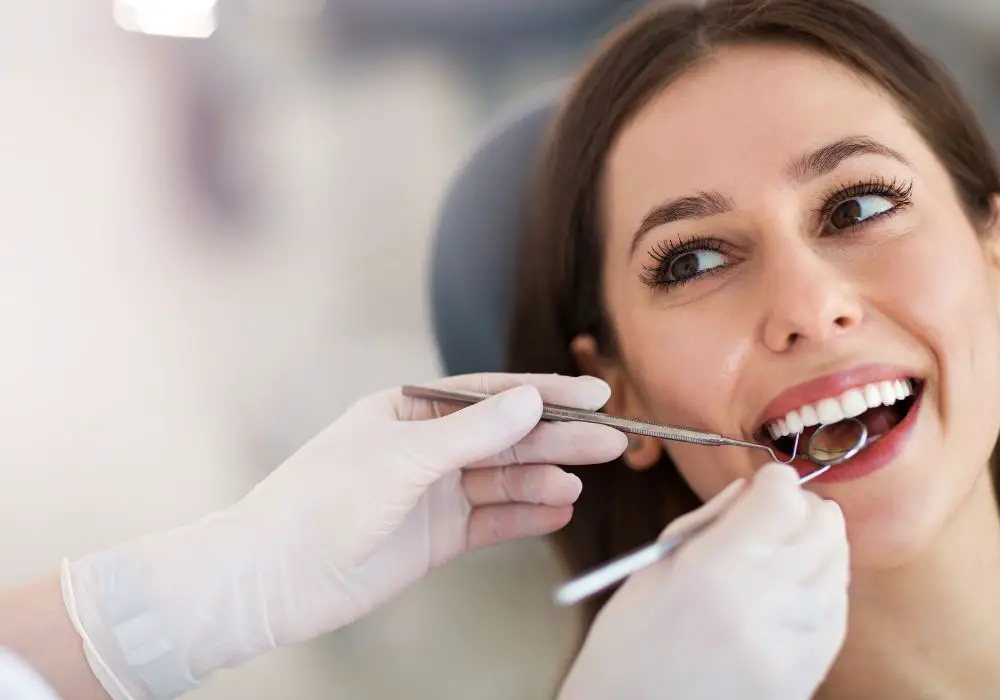
Brushing properly is essential for keeping teeth and gums healthy. Here are some guidelines for good brushing:
- Choose a soft or extra soft bristle toothbrush that won’t damage gums and enamel. Medium and hard brushes are too abrasive.
- Replace the toothbrush every 3-4 months, or sooner if bristles fray. Worn bristles won’t clean well.
- Use a toothpaste containing fluoride to strengthen enamel.
- Brush for 2 full minutes, longer if needed, to fully remove plaque. Set a timer.
- Hold brush at a 45 degree angle aimed at the gumline as you brush.
- Gently brush using short, circular scrubbing motions to remove plaque. Avoid vigorous scrubbing.
- Systematically brush each section for 30 seconds – outsides, insides, tops of teeth, and tongue.
- Pay extra attention to the back molars and areas around fillings where plaque accumulates more.
- Rinse mouth and brush afterwards to remove lingering toothpaste foam.
Brushing properly morning and night provides a thorough plaque removal vital for preventing dental problems down the road.
Effective Flossing Techniques
Flossing is the only way to remove plaque from between teeth and just below the gumline where much decay begins. Follow these tips for effective flossing:
- Use 18-24 inches of floss wrapped around middle fingers and tautly stretched between hands with about 1 inch between them.
- Gently guide floss between two teeth with a zig-zag motion, careful not to snap it down and cut gums.
- Curve floss into a C-shape around the side of each tooth and rub floss up and down.
- Floss several times per space, using fresh floss until it comes out clean.
- Scrub where teeth touch to get plaque missed by brushing.
- Floss behind back teeth and don’t forget to floss the back side of your last tooth.
- Rinse mouth thoroughly when done to wash away dislodged plaque.
Floss daily, especially at night, as it removes cavity-causing plaque between teeth that brushing alone can’t handle.
Additional Oral Hygiene Tips
Here are some other tips for preventing plaque buildup and promoting healthy teeth and gums:
- Use mouthwash without alcohol at least once daily to kill bacteria missed by brushing and flossing. Swish it vigorously around teeth and gums and spit it out.
- If you wear dentures, brush them daily with a special denture brush and soak them in cleaner at night. Use denture adhesive sparingly and remove dentures at night.
- Drink plenty of water each day to produce saliva that naturally rinses away food particles and buffers plaque acids.
- Limit snacks with refined carbohydrates and sugars that plaque bacteria feed on. Avoid sugary drinks and constant sipping.
- Quit smoking and tobacco use which stain teeth, cause gum recession, impair healing, and increase oral cancer risks.
- Have regular dental exams and cleanings every 6 months to catch problems early and prevent extensive, costly damage.
- See the dentist promptly if you have tooth pain, sensitivity, swollen gums, bad breath, or other worrisome symptoms.
Following good oral hygiene daily and routinely seeing a dentist prevents more severe issues from developing.
Special Oral Health Considerations

People at higher risk for certain oral diseases need to take extra precautions and follow specific guidelines.
Children
- Clean infants’ gums with water and a soft cloth when teeth first erupt.
- Start brushing with fluoride toothpaste once they have a few teeth, using just a smear for under age 3.
- Begin flossing between teeth that touch once your child has molars, around age 2-3.
- Monitor brushing and flossing until around age 8 to ensure they do it thoroughly.
- See a pediatric dentist by 1 year old or after their first tooth erupts.
- Avoid juice, candy, and sugary snacks/drinks which promote tooth decay.
Braces
- Take extra time thoroughly brushing and flossing around brackets which attract plaque. Use a special flossing threader.
- Get cleanings every 3-4 months while wearing braces to prevent white spot lesions and decay.
- Avoid sticky, hard, crunchy, and chewy foods that can damage braces.
- Use orthodontic wax to relieve irritation from braces rubbing the cheeks.
Dry Mouth
- Drink plenty of water and use saliva substitutes to moisten the mouth.
- Avoid alcohol, caffeine, smoking, and medications that reduce saliva flow.
- Chew xylitol gum or lozenges to stimulate saliva production.
- Use a humidifier, especially at night.
- Have regular dental cleanings every 4 months to reduce bacteria.
Gum Disease
- See a dentist regularly to have tartar removed from below the gumline and halt disease progression.
- Undergo deep cleanings every 3 months for severe gum disease.
- Use prescription strength medicated mouth rinses.
- Get help quitting smoking which exacerbates gum disease.
- Improve home care with an electric toothbrush and Waterpik oral irrigator.
Reaching those at increased risk ensures they follow preventative protocols to avoid oral health problems.
Consequences of Poor Oral Hygiene
Neglecting proper oral hygiene through brushing, flossing, and professional care has severe consequences. Some problems that arise from poor dental care include:
- Tooth loss – cavities and gum disease destroy teeth
- Gingivitis and periodontitis – mild to serious gum infections
- Halitosis – foul-smelling breath from festering bacteria
- Tooth abscesses – infected pockets around roots cause throbbing pain
- Tooth sensitivity – dentin exposed by receding gums aches from hot and cold
- Tooth erosion – acids wear away enamel leading to cavities
- Oral thrush – fungal infection coats mouth and tongue
- Chipped or broken teeth – cracks rapidly decay without repair
- TMJ/TMD – jaw pain and dysfunction from teeth grinding
- Oral cancer – lack of dental visits prevents early detection
- Systemic inflammation – bacteria enter bloodstream increasing disease risks
Neglecting oral health also takes a financial toll, with dental treatments costing far more than simple preventative care. Poor dental hygiene diminishes both health and quality of life.
Establishing Good Oral Care Habits
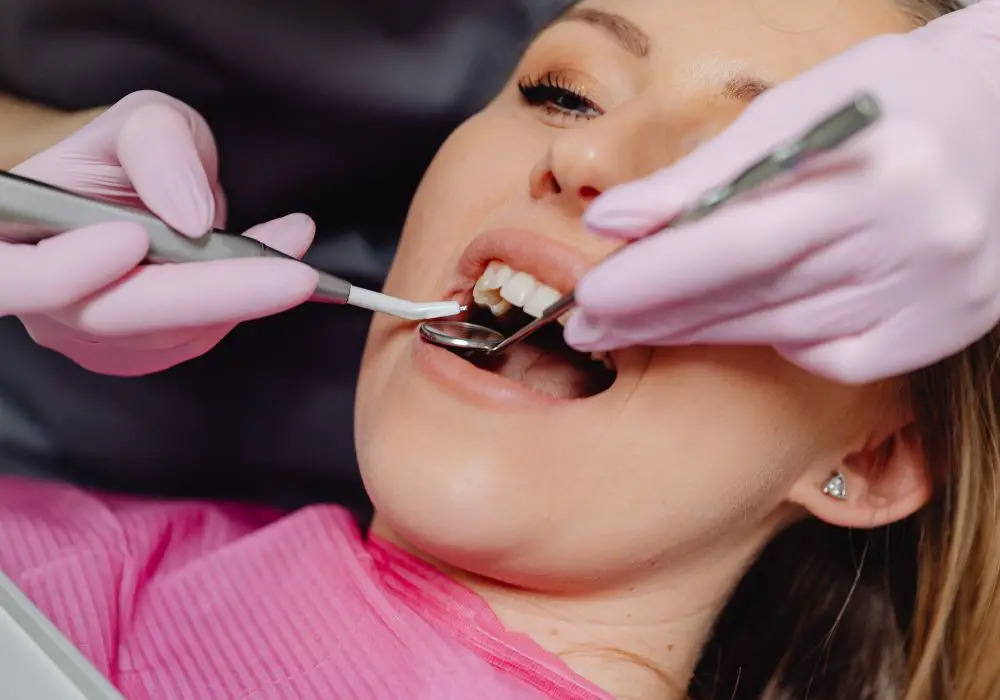
Forming good oral hygiene habits from a young age prevents problems. Here are tips for teaching children, teens, and young adults to care for their teeth:
Toddlers
- Make brushing playful and fun, like brushing stuffed animals’ teeth too. Praise them for sitting still.
- Sing a 2 minute song while brushing to ensure thoroughly cleaning all tooth surfaces.
- To get to those back molars, have kids lie down with head in your lap.
- Let them pick out a special toothbrush with their favorite character on it to make brushing exciting.
- Lead by example, brushing and flossing your own teeth with your child.
Young Kids
- Remind them to brush morning and night until it becomes a habitual routine. Post a chart with stars for each day they remember.
- Time them with an hourglass or phone timer to ensure brushing the full 2 minutes.
- Teach them proper scrubbing technique and guide hands to effectively clean all tooth surfaces.
- Establish set times to brush, like right after breakfast and before bed.
Preteens
- Stress the importance of brushing and flossing to prevent painful cavities and expensive dental work.
- Consider rewarding good checkup reports from the dentist with a treat or activity.
- Suggest brushing in sync with a favorite song’s chorus to time the 2 minutes.
- Show how plaque and food collects between teeth on floss so they understand why flossing matters.
Teens
- Provide new electric brush or stylish floss picks to make hygiene more enticing.
- Remind them of the confidence boost from having whiter, fresher breath for school and social events.
- Share photos of gum disease to stress the importance of prevention before permanent damage.
- Emphasize that oral health impacts overall health and wellness throughout life.
Reinforcing good habits consistently from toddlerhood through the teen years ensures they stick for a lifetime of healthy teeth and gums.
Why Keeping Teeth Clean Matters
Oral health significantly influences total health and quality of life. Keeping your teeth brushed and flossed:
- Prevents tooth decay that requires painful, expensive fillings and crowns
- Averts gum infections that cause irreversible bone and tooth loss
- Reduces your risk of diabetes, heart disease, stroke, and respiratory infection
- Saves thousands of dollars on dental treatments like dentures and implants
- Gives you fresh breath for intimate or professional conversations
- Allows eating comfortably without sensitivity or embarrassing tooth loss
- Boosts confidence with a bright, attractive smile
- Sets a healthy example for your children’s habits
- Provides peace of mind knowing your dental health is excellent
Good oral hygiene is the simple yet crucial foundation that supports a lifetime of great dental health and an improved total wellness. Don’t take your teeth for granted – brushing and flossing daily provides huge dividends to your health, self-esteem, and budget. Protect your precious smile by diligently caring for your teeth each and every day.
Conclusion
A healthy mouth is central to overall health and quality of life. Meticulous oral hygiene through brushing, flossing, diet, and professional dental care prevents tooth decay, gum disease, bad breath, and many other problems. Establishing excellent habits early and maintaining them throughout adulthood reduces risks of systemic diseases connected to inflammation from poor dental health. Keeping your teeth clean and seeing a dentist regularly are two of the most important things you can do to achieve excellent lifelong health and wellbeing. Don’t wait until you have issues to start taking good care of your teeth.

